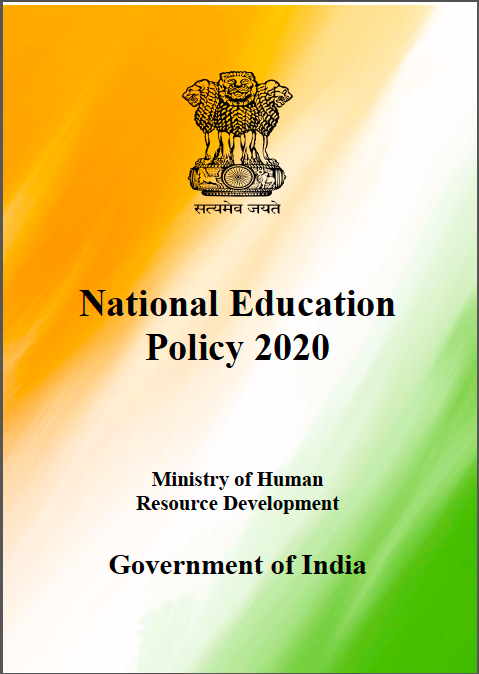Undoubtedly, many things had taken a complete topsy turvy (for a negative turn, to be specific) during 2020, specifically known as the “Covid year.” However, certain programs for high school assessment development in India also took place this year.
One such development in the Indian Education system is The National Education Policy (NEP) 2020. It brought some robust amendments in the field of education, especially in the high school assessment development in India.
It has shown a promising shift from conventional learning methods to a new horizon of holistic and innovative approaches to learning. Nonetheless, this article will explore the intricacies of this transformation. Also, the write-up will highlight the implications of high school assessment development empowered by NEP 2020 for students, educators, and the education system at large.
How is Transformation Introduced in High School Assessment Development in India for NEP 2020:
As mentioned before, assessment development for high school in India has undergone several shifts of transfirmnation due to NEP 2020. Let’s see how the scenario occurred:
Diversification of Assessment Methods
The NEP 2020 focuses on continuous evaluation and assessment of students rather than promoting rote learning and memorization. These assessments would help the students hone their critical thinking skills, problem-solving abilities, and creativity. Various formats of assessments have been introduced. Some of them are:
Formative Assessments:
These are more surprise tests conducted without any prior information to the students. These help the students to stay prepared for any random evaluation that can be conducted any day, to check their progress and to provide feedback for improvement.

Summative Assessments:
These assessments are conducted with prior information to the students. They help assess the student’s overall performance and grip on the subject.
Project Based Evaluations:
The projects are intended to give the students a taste of real-life problems. Thus, it helps them to assess their problem-solving skills which are much sought after in the 21st century. They help the students in establishing connections between school and life beyond school.
Incorporation Of Technology in High School Assessment Development
Since it was incorporated in the year 2020, various updated technologies had to be implemented to keep track of education for students. The NEP 2020 instructs that technological infrastructure should be constantly upgraded according to the latest needs of the education system. It has recommended various measures like :
- Conducting a series of pilot studies for online education
- Promotion of adequate online teaching-learning platforms
- Using Technology for the creation of virtual labs for easy and equal access to all students
- Creation of digital repositories, E-content and their fair dissemination among students
- More robust investments in creating digital infrastructure
- And most importantly making the digital content of these online educational platforms available in all Indian languages so that students can make the most from it.
- Online examinations, computer-based testing, and AI-driven assessments are integrated to ensure a more accurate evaluation of a student’s knowledge and skills.
- Development of an IT-based tracking system by all states/UTs for tracking learners’ progress.
Keen Focus on Skill Development
High school assessments are no longer just about testing subject-specific knowledge. There is a need for students to acquire practical skills to face real-world challenges. Hence, NEP 2020 places a significant emphasis on skill development.
Since NEP 2020 was issued, high school assessment development in India has focused on evaluating skills like communication, teamwork, critical thinking, and problem-solving. This shift aims to produce well-rounded individuals capable of navigating the complexities of the modern world.
The National Policy in 2020 aimed to make India a knowledge superpower. This is only possible when we not only focus on the scholastic skills but also go much beyond that, rather focusing on the holistic development of an individual. Quality high school assessment development in India is essential in this matter.
The policy brought some changes in school curricula as well. It introduced a 5+3+3+4 curricular structure. Moreover, it emphasizes early childhood care, skill development, and teacher education reforms.
The profitable employment of students from the general streams has always been a major challenge for the Indian education system. Proper high school assessment development in India can help in achieving that. Hence, the policy focused on that strongly.

Also, NEP 2020 aimed to improve students’ employability, so India will have the largest working-age population by 2030. Hence, it has introduced vocational learning courses into various mainstream programs in all educational institutes.
Final Words:
Thus, the high school assessment development in India, initiated by NEP 2020, marks a pivotal moment in the country’s education history.
The shift towards diversified assessment methods, integration of technology, focus on skill development, and continuous evaluation signifies a departure from outdated and archaic practices. Moreover, this evolution aligns with the global educational trends. Thus, it prepares Indian students for a future where adaptability and versatility are paramount.
With the progress of this transformative period, it has become important for educators, students and stakeholders to embrace these changes wholeheartedly. These renovated assessment policies align with the contemporary needs of the education sector. Also, they significantly contribute to fostering remarkable growth in individuals so that they become capable enough of facing challenges in this evolving planet.
Till then, keep exploring more articles on education reforms and stay informed about the progressive changes shaping the future of India’s education landscape. Embrace the revolution – because the future of education is here, and it’s promising.



Comments 0